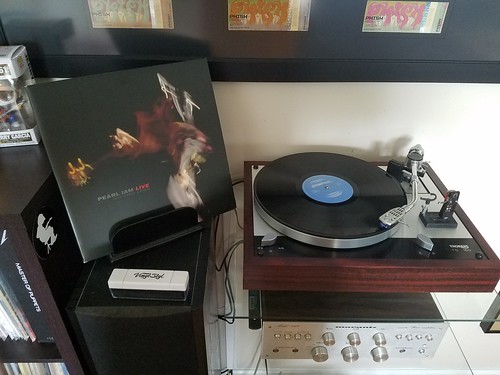I am not experienced in soldering electrical boards, etc.
What kind of cost am I looking at for replacing relay in a 2240?
I am working on a 2240 acquired for $50. started out with lots of static and buttons sticking etc. After a good Deox'ing the buttons are smooth as can be and the static in the volume etc is gone. However I am experiencing the level drop out in the channels that many have described here. After searching and exploring, I working on the relay, cleaned the contacts and tested. I thought it was a complete success at first but I am still getting some channel drop out, not all the time, very intermittent.
anyone have experience with replacement cost? recommendations in the Nashville/Middle TN area?
Thanks in advance.
What kind of cost am I looking at for replacing relay in a 2240?
I am working on a 2240 acquired for $50. started out with lots of static and buttons sticking etc. After a good Deox'ing the buttons are smooth as can be and the static in the volume etc is gone. However I am experiencing the level drop out in the channels that many have described here. After searching and exploring, I working on the relay, cleaned the contacts and tested. I thought it was a complete success at first but I am still getting some channel drop out, not all the time, very intermittent.
anyone have experience with replacement cost? recommendations in the Nashville/Middle TN area?
Thanks in advance.



